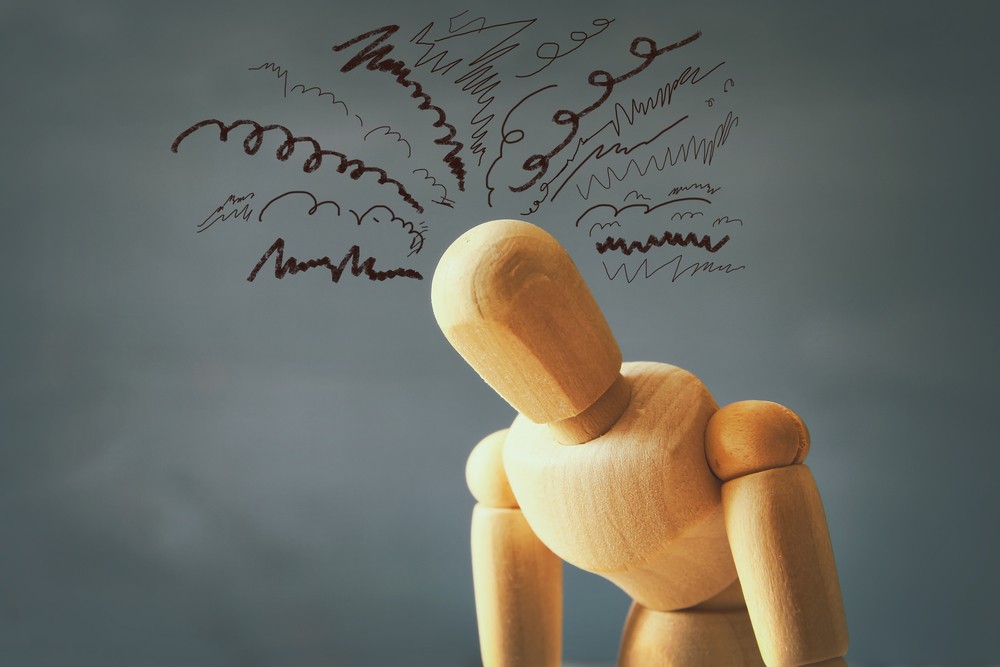Popular Reads
Top Results
Can't find what you're looking for?
View all search resultsPopular Reads
Top Results
Can't find what you're looking for?
View all search results12 symptoms of anxiety disorder you should know about
It’s normal to feel nervous once in a while, but at what point can we say the anxiety may be an affliction?
Change text size
Gift Premium Articles
to Anyone
I
t’s normal to feel nervous once in a while, but at what point can we say the anxiety may be an affliction? This list may give some clues.
Here are 12 symptoms of anxiety disorder, as compiled by InStyle:
Worrying too much
How should we quantify “too much?” According to Sally Winston, codirector of the Anxiety and Stress Disorder Institute of Maryland in Towson, the difference is characterized by the individual’s emotions having an effect that is detrimental to the person’s health.
It’s best not to get worked up over small things so that you can live a more peaceful life.
Sleep problems
If you have trouble sleeping, you may be under a lot of stress.
It’s normal if you occasionally have trouble falling asleep, but lying awake in bed and thinking about your problems almost every night is not. It may also be hard to calm yourself down in the middle of the night.
If this sounds familiar, you may be suffering from an anxiety disorder.
Read also: What you need to know about depression
Irrational fears
Everyone has their own fears, but reactions may differ when confronting them.
When someone overreacts when faced with their fear, he or she may have anxiety towards that specific object, which can disrupt the person’s life.
Muscle tensions
When a person’s muscles contract, this usually means that the person was just shocked or surprised. But muscles shouldn’t constantly be tensed unless the person is in constant anxiety.
People with an anxiety disorder should exercise daily to prevent any arbitrary muscle contractions, Sally Winston explained.
Chronic indigestion
It may not all be in our minds, according to Winston. As there are other anxiety-caused syndromes for other body parts, Winston stated that irritable bowel syndrome might also be “basically an anxiety in the digestive tract.”
Read also: Instagram photos can reveal signs of depression, study suggests
Stage fright
Stage fright is a very common fear, but fixating on it is not healthy. Doing so can transform the fear into an anxiety disorder.
Self-consciousness
It’s human nature to care about what other people think, but when someone’s fear of others’ opinions creates massive social consequences, such as with work and relationships, he or she may have an anxiety disorder.
Panic
Panic disorders may stem from anxiety as well. The person may be induced to always think about the uncertain future of their lives. They constantly panic about things that may jump out unexpectedly, and they may have even experienced a panic attack.
Flashbacks
Thinking about embarrassing mistakes from the past can be hard for some people. People with anxiety may have recurring visions of unpleasant things from their past, which understandably increases stress and anxiety.
People who suffer from this tend to avoid objects or items that remind them of that moment.
Read also: One hour of exercise a week helps prevent depression: Study
Perfectionist
A person with an anxiety disorder may want to make things perfect down to the last detail. If the person isn’t satisfied with whatever the project is, he or she is likely to scrap it and start from the beginning.
"If you are constantly judging yourself or you have a lot of anticipatory anxiety about making mistakes or falling short of your standards, then you probably have an anxiety disorder," Winston said.
Compulsive actions
"If you like your radio at volume level 3, for example, and it breaks and gets stuck on 4, would you be in a total panic until you could get it fixed?" Winston asked. This question posed the problem of obsessive-compulsive disorder as a form of anxiety.
Although many may answer “no” to this, there are some people who would unhesitatingly agree that they sometimes panic over trivial things. If someone does obsess over relatively meaningless rituals, then he or she may have an anxiety disorder.
Self-doubt
Many people suffering from an anxiety disorder are unsurprisingly indecisive. They may not be indecisive about insignificant questions, but they most likely are ambivalent about things related to their identity such as their sexual orientation, gender and many more.
This indecisiveness of one’s own identity becomes a recurring question until the question itself becomes an obsession. (ezr/kes)











